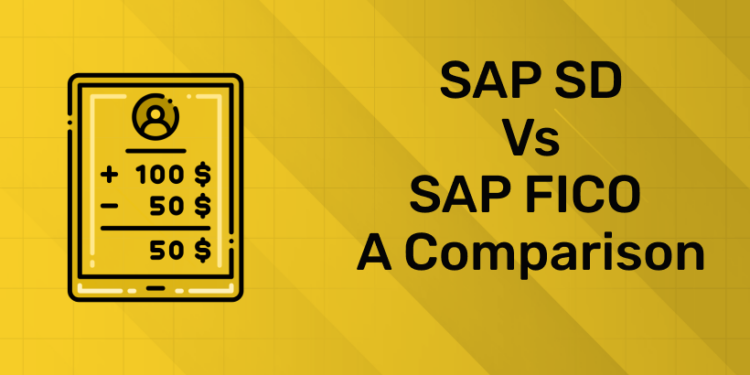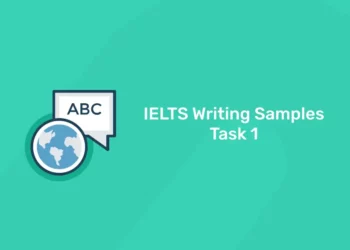Table of Contents
In today’s competitive market, businesses require robust systems to manage various aspects of their operations. SAP ERP – Enterprise Resource Planning modules such as SAP SD – Sales and Distribution and SAP FICO – Financial Accounting and Controlling offer distinct functionalities, catering to different business needs. While both play a crucial role in streamlining workflows, understanding their differences is vital for companies looking to implement the right solutions. In this blog, we’ll break down the core functions of SAP SD and SAP FICO, discuss their similarities and differences, and help you determine which module suits your business needs.
SAP SD: An Overview
SAP Sales and Distribution SD is designed to manage a company’s entire sales and distribution process. From order creation to delivery and billing, SAP SD handles every step efficiently, ensuring that businesses maintain smooth customer service and logistics operations. SAP SD integrates seamlessly with other SAP modules like SAP MM – Materials Management and SAP FI – Financial Accounting to ensure data flow and accuracy across business functions.
Core Components of SAP SD
- Master Data (MD): Manages information related to customers, vendors, and pricing.
- Sales (SLS): Oversees sales order creation and contract management.
- Shipping (SHP): Handles logistics and product deliveries.
- Billing (BIL): Takes care of invoice creation and tracking.
- Transportation (TBA): Manages freight and shipping logistics.
- Customer Sales Support (CAS): Helps track customer inquiries, quotes, and orders
SAP FICO: An Overview
1: Accounting provides information on
On the financial side of the spectrum, SAP FICO – Financial Accounting and Controlling is a crucial module that helps businesses manage their financial transactions, accounting, and internal cost controls. SAP FICO is divided into two key parts:
- Financial Accounting (FI): Ensures legal reporting and financial transactions are captured accurately, such as general ledger management, tax management, and asset accounting.
- Controlling (CO): Focuses on internal cost controls, profitability analysis, and cost centre management.
By integrating SAP FICO with modules like SAP SD, businesses can ensure that financial data is consistent, accurate, and up-to-date across departments.
Core Components of SAP FICO
- General Ledger Accounting (GL): Manages all financial transactions
- Accounts Payable (AP) and Accounts Receivable (AR): Manages vendor payments and customer invoicing
- Asset Accounting (AA): Tracks company assets and depreciation
- Cost Center Accounting (CCA): Helps businesses manage internal costs and profitability
SAP SD Vs SAP FICO: Key Differences
While they may overlap in data integration and efficiency, SAP SD and SAP FICO have distinct differences based on the business processes they support.
- Focus Areas: SAP SD is primarily concerned with sales and logistics, while SAP FICO deals with financial transactions and internal cost management.
- Users: SAP SD is used by sales teams, customer service, and logistics personnel. SAP FICO, on the other hand, is primarily used by financial teams, including accountants, controllers, and CFOs.
- Integration with Other Modules: SAP SD integrates heavily with SAP MM and SAP PP (Production Planning) for supply chain management, while SAP FICO works closely with HR, and Treasury for internal financial reporting and management.
- Reporting Functions: SAP FICO provides robust financial reporting and analysis tools that help businesses comply with legal reporting standards. In contrast, SAP SD focuses more on tracking sales performance, customer orders, and delivery timelines.
- Transaction Management: SAP SD handles transactions related to customers, sales orders, and shipping, while SAP FICO focuses on payments, asset management, and cost accounting.
Join Entri’s SAP FICO Training Course today!!
SAP SD Vs SAP FICO: Use Cases
SAP SD Use Case
A multinational manufacturing company uses SAP SD to manage its global sales operations. By automating the sales process, the company ensures that orders are processed faster, customers receive accurate invoices, and shipping is managed efficiently.
SAP FICO Use Case
A retail corporation leverages SAP FICO to keep its financial accounts accurate and compliant with international regulations. By using SAP FI for legal reporting and CO for internal cost tracking, the company can optimize its profitability across different product lines.
SAP SD Vs SAP FICO: Career Opportunities
Given their significance in business operations, both SAP SD and SAP FICO offer rewarding career opportunities for professionals. Additionally, companies often seek professionals with cross-module expertise (e.g., SD-FICO integration) to ensure smooth coordination between sales and finance departments.
SAP SD Careers:
Roles such as SAP SD Consultants, Sales Analysts, and Logistics Coordinators are in high demand, especially in industries like retail, manufacturing, and pharmaceuticals.
SAP FICO Careers:
SAP FICO Consultants, Financial Controllers, and Accountants specializing in SAP FICO often find opportunities in finance departments of large corporations, consultancy firms, and government institutions.
Future Trends in SAP SD and SAP FICO
Both SAP SD and SAP FICO continue to evolve as technology advances, driven by developments in automation, artificial intelligence (AI), and data analytics. Future trends include:
- AI-driven insights: More companies are integrating AI into SAP to gain predictive insights into sales patterns and financial forecasts.
- Cloud adoption: As businesses shift to cloud-based solutions, SAP’s cloud ERP offerings (such as SAP S/4HANA) are becoming more prominent.
- Increased integration: Future SAP modules will likely see even tighter integration between SD and FICO, helping businesses streamline operations across departments.
Join Entri’s SAP FICO Training Course today!!
Learn with Entri
For those looking to build expertise in SAP SD or SAP FICO, Entri offers tailored courses that provide a comprehensive understanding of these modules. Whether you are a beginner or an experienced professional, Entri’s SAP SD and SAP FICO courses are designed to help you master these critical ERP functions. From detailed video tutorials to hands-on exercises, these courses prepare you for real-world challenges and career advancement. Explore Entri’s course and start your journey toward mastering sales and distribution in SAP ERP. Alternatively, check out the to deepen your financial and controlling expertise.
Frequently Asked Questions
Which module is easier to learn, SAP SD or SAP FICO?
The answer depends on your background. If you have experience in sales or customer service, SAP SD might feel more intuitive. On the other hand, professionals with financial knowledge may find SAP FICO easier to grasp.
Is there a high demand for SAP SD and FICO professionals?
Absolutely. Both SAP SD and SAP FICO skills are in demand across industries, as businesses rely on these modules to maintain efficient sales processes and financial accuracy
Is there a high demand for SAP SD and FICO professionals?
Absolutely. Both SAP SD and SAP FICO skills are in demand across industries, as businesses rely on these modules to maintain efficient sales processes and financial accuracy.










